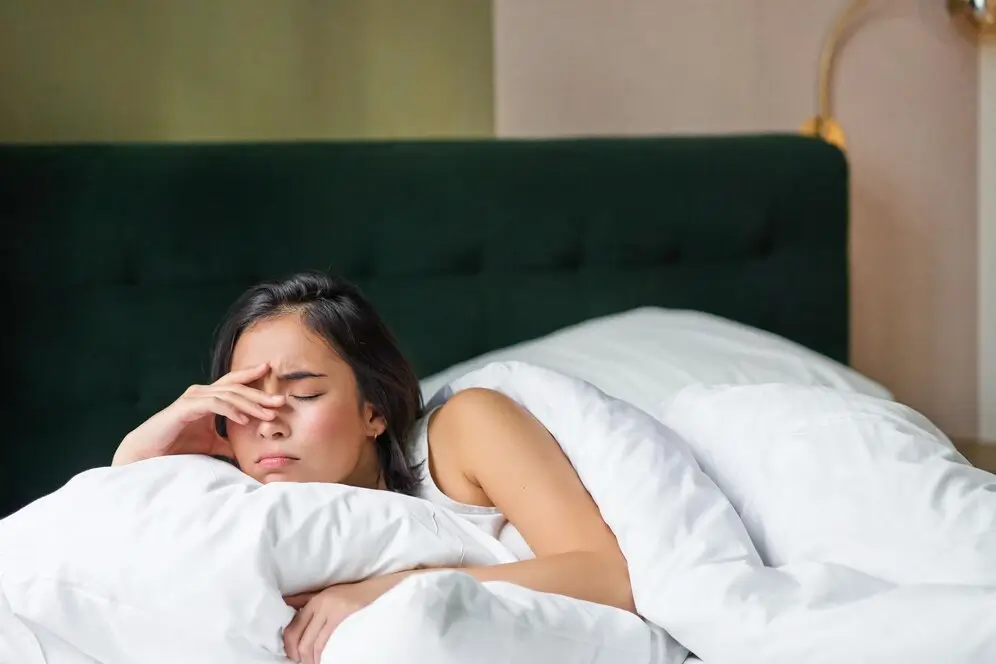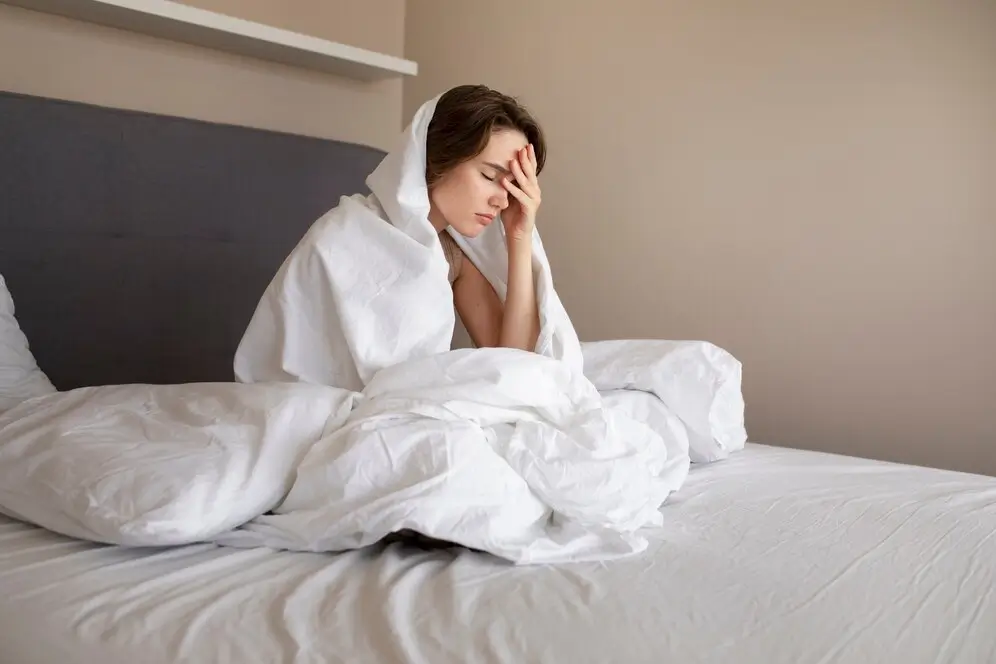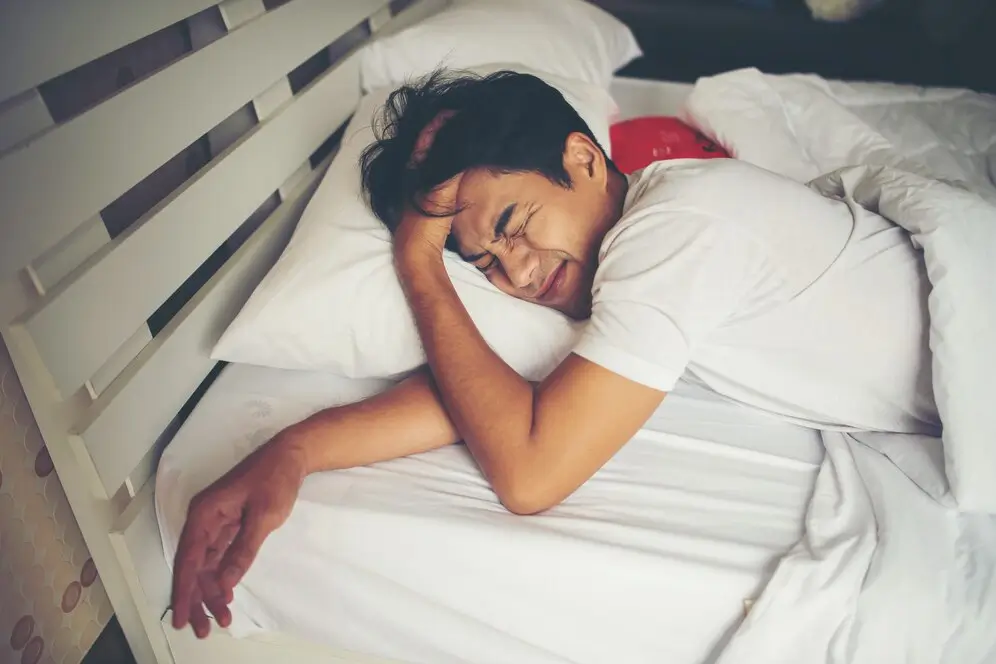Everything You Need To Know About Restless Sleep And Ways To Deal With It
Table of Contents
We all hope for an uninterrupted, good night’s sleep that makes you energetic, refreshed, and ready to take on the new day. Unfortunately, this is not the experience one gets all the time. Some people experience very active night sleep with frequent wakeups and the inability to fall asleep quickly even after a long time. Such an active night routine leads to frequent tosses on the bed, stretching the bedding, or leaving the bed multiple times. As a result, people feel restless, tired, weak, and irritated the next morning, If you can relate to this kind of restless sleeping habit/disorder and want to get rid of it, then you have come to the right place.
Restless sleep is one of the common sleeping disorders that can affect people of any age group. It is not a typical clinical sleeping disorder but it has potential health risks. Today, we will discuss everything about RSD (restless sleeping disorder) and ways you can deal with it.
What Is Restless Sleep?
Before we talk about the causes of restless sleeping or how you can manage it, let’s begin with the basics and understand what is restless sleep. Also, restless sleeping has no clear definition as the AASM or American Academy of Sleep Medicine did not consider it as a medical sleep disorder.
Although the experience of sleeplessness is subjective you can draw an objective measure through restlessness at night such as poor sleep cycle, frequent wakeups, and sleep disruption.
What Does Restless Sleep Look or Feel Like?
Night sleeplessness has become a common issue affecting people of all age groups from children, terms to adults and seniors. However, the experience of sleeplessness is subjective and varies from person to person. Still, most people who experience restlessness at night have some common complaints that help to draw an objective description of RSD. Here we will discuss how restless sleeping looks and feels-
– Experiencing Restless Sleep –
If you have developed RSD or restless sleeping disorder and trying to sleep, you might experience the following issues –
- Feeling that you are not sleeping deeply or just half-asleep.
- Frequently tossing and turning in your bed to get comfortable and well-settled.
- Getting frustrated with your inability to fall asleep.
- Inability to fall asleep quickly after waking up at night.
- Mind racing and constant stringing that interrupt your sleep.
– Observing Restless Sleep
Besides experiencing restless sleeping, you can also observe restless sleep in another person through-
- Walking unexpectedly and frequently waking up during night time.
- Noticeable movement of the limbs and even getting out of bed or sleepwalking.
- Loud snoring that includes gasping and choking sounds.
- Sleep bruxism or teeth grinding during sleep.
- Yelling or talking during sleep.
How Is Restless Sleep Different From Insomnia? (60)
Many people confuse restless sleeping with insomnia or use them interchangeably. But this is not correct technically as both condition are different and one have certain symptoms and signs in common. Insomnia is a recognized sleep disorder that has a specific definition in sleep medicine. Even though people use the term insomnia to describe their general sleeplessness. But in reality, they might only suffer from restless sleep and not insomnia (especially if their sleeplessness is occasional).
Causes of Restless Sleep
Restless sleeping can lead to troubled sleep, poor sleep habits, nausea, and sleep deprivation. Here, we will discuss some common causes of restless sleeping-
- Underlying medical conditions – People with certain underlying medical conditions can experience restless sleeping. It can be both sleep-related or unrelated. Some sleep-related problems like sleep apnea, delayed sleep phase disorder, RLS, sleepwalking, and Narcolepsy. On the other hand, other medical conditions such as anxiety, depression, Rheumatoid arthritis, multiple sclerosis, etc., can also cause restless sleeping.
- Sleeping environment– Sleeping environment plays a crucial role in our sleep and influences sleep quality. Sleeping in a sleep unfriendly environment such as places with bright light, noise, and uncomfortable bedding can lead to sleeplessness. According to experts, the ideal sleep environment is quiet, dark, and comfortable for sleeping.
- Pain and body soreness – Any kind of pain whether chronic or temporary can make it difficult for a person to fall asleep. And even if they fall asleep the sensation can cause interruption and unwanted wakeups during sleep.
- Napping -Napping at the wrong time can cause restless sleeping. For instance, a 15 to 30-minute nap in the daytime can enhance productivity, energy, and performance. However, taking longer naps in the late evening can cause difficulty in sleeping and interrupt peaceful sleep.
- Exercise– Exercise can benefit your overall well-being. However, doing extensive workouts before bedtime can cause restless sleep.
- Diet – Consuming high-calorie and junk food late at night increases energy levels in your body which causes interruption in peaceful sleep.
- Stress and anxiety – Stress and anxiety can also affect your sleep quality and result in sleeplessness. Having a stressful lifestyle often leads to restless sleeping problems.
- Depression – depression is another common cause of restless sleep among teens and adults.
- Loneliness – loneliness can affect the overall well-being of a person. It can also affect their sleep cycle and quality. Most elderly people who suffer from loneliness have trouble sleeping or restlessness at night.
- Poor sleep hygiene – According to sleep experts poor sleep hygiene is a major problem for sleeping. Poor sleep hygiene including bedtime screening, taking heavy meals and alcohol at late night, sleeping too late, etc. If you are wondering how to increase deep sleep, you must focus on improving sleep hygiene.
What Are the Symptoms of Restless Sleep?
Identifying the symptoms of restless sleeping is essential to separate it from other sleeping disorders. Restless sleeping has several symptoms including nausea and sleep deprivation. Below, we will discuss the symptoms of restless sleeping in detail-
- Difficulty sleeping
- Irritability during daytime
- Frequent movement
- Multiple wake-ups during sleep
- Feeling tired
- Excessive sleepiness during daytime
- Poor cognitive and physical performance
- Feeling half-asleep
Remember that the symptoms of restless sleeping are subjective and can vary from person to person. Above we have covered the common symptoms of restless sleeping.
How Is Restless Sleep Different By Age Group?
People of different age groups can experience restless sleeping problems. However, symptoms and causes can differ based on lifestyle and biological reasons.
– Restless Sleep in Teens
Teens also need 7-8 hours of sleep daily for healthy mental and physical growth. However, teenagers go through various biological and lifestyle changes that can cause restless sleeping problems. ADHD, RLS, and RLA are also responsible for restless sleeping in teens. Other than these physical causes, issues like using smartphones in bed, partying late, and drug and alcohol use also result in restless sleeping in teenagers. However, restless sleep is not natural and can hinder the overall growth of teens. Persistent restless sleep problems require professional attention.
– Restless Sleep in Adults
Adults suffering from various sleep disorders are quite common. One of these problems is restless sleeping. A hectic lifestyle and daily stress and anxiety are major reasons for this sleeping disorder in adults. Pain is another crucial factor that interrupts restful sleep in adults. If adults face issues like breathing disruption or snoring and other daytime effects (brain fog, fatigue, and drowsiness), they should seek medical help.
– Restless Sleep in Seniors
Aging does not commonly cause restless sleeping in adults but many older adults suffer from various sleeping disorders. Seniors experience lighter sleep which means their sleep can easily get disrupted. There are many reasons that contribute to restless sleep in seniors. Some of them are chronic pain, loneliness, chronic illnesses, and sleep apnea. Elderly people also take lots of prescription medications that can affect their sleeping patterns. Some of the symptoms of seniors becoming restless at night during sleep are difficulty falling asleep, short sleep duration, and frequent napping during daytime.

How Do You Treat Restless Sleep?
If you are searching for how to increase deep sleep? Or how to manage restless sleeping? You must understand the reason for your restless sleeping to get appropriate treatment. Here are a few ways you can treat restless sleeping-
- Indulge in self-care activities – Self-care activities can have a great impact on sleep quality. So, indulging in self-care activities such as spas, meditation, and relaxation can boost quality sleep.
- Control food habits – Avoiding alcohol, and high-calorie foods late at night or in the evening can help to improve the sleep cycle and promote healthy sleeping.
- Follow proper sleep hygiene – following proper sleep hygiene such as maintaining a strict sleep time, limiting screen time before bed, etc. can effectively boost your sleep cycle.
- Improve sleep environment – Ensure you have a sleep-friendly environment to improve your sleep and prevent sleep interruption.
Takeaway
Restless sleep is common in people and it can affect people of any age ranging from infants to elderly people. However, it is not a chronic condition and AASM does not include RSD among clinical sleeping disorders.
It is also different from insomnia and occurs occasionally influenced by different conditions. And above we have discussed everything you need to know about restless sleeping and ways to deal with it.

